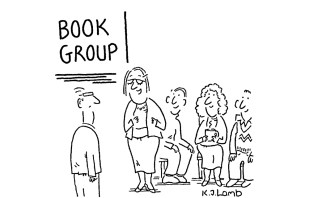You tend to like a jockey who has just ridden you a 16-1 winner, as Callum Shepherd did last Saturday at Ascot, bringing home Isle of Jura with a perfect ride as the three-length victor of the Hardwicke Stakes. But it wasn’t that which has elevated him to my top ten favourite riders: it was the maturity of his words afterwards.
Just a month previously, after riding Ambiente Friendly to victory in the Lingfield Derby Trial, Callum had been ‘jocked off’ by the owners, who gave the ride to Rab Havlin for the real thing at Epsom. He was not the first jockey to be so snubbed, nor will he be the last. Some become embittered by the experience or lose their confidence. Leaning on the winner’s enclosure rail, Callum told us instead how he had looked up at the stands after Isle of Jura’s win to soak up and remember the feeling: ‘I’m lucky to be doing what I’m doing. You can’t dwell in the pit of despair. You’re either going to get beat up by this sport or you’re going to have the resolve to go out and put a brave face on. People don’t want to see you sulking and moaning.’ He couldn’t disguise the tremor to his voice as he added: ‘We give our life and soul to get everything we can out of this sport. My friend Stefano Cherchi [who died in April following a racing fall in Australia] quite literally gave his life. How silly would it be if I was moaning about losing rides with what his family have had to go through?’
When I first started writing about racing, many trainer/jockey relationships involved a fair amount of forelock-tugging. The boss was ‘the Guvnor’, not Fred or Jim. One Grand National-winning jockey I know was never once invited to a meal in his trainer’s house. These days, most teams are on easy first-name terms, as are Callum and George Scott, Isle of Jura’s trainer, who we learned had the sensitivity to find rides at Lingfield on Derby day for Callum so that he didn’t have to face pointing fingers at Epsom on a chagrin-inducing occasion. The only surprise was that Isle of Jura, whose success brought the most exuberant racecourse celebration I have ever seen from Middle Eastern owners (Bahrain’s Sheikh Nasser bin Hamad Al Khalifa and his Victorious Racing entourage) was George’s first Royal Ascot winner.
It was a memorable Royal Ascot. Trainer Aidan O’Brien not only secured his 400th Group One – he also saw his sons Joseph and Donnacha both train Royal Ascot winners. That is some breeding achievement. Few will forget the astounding nine-length victory of Aidan’s Bedtime Story in the -Chesham, or the burst of speed which Ryan Moore coaxed from his Fairy Godmother after all looked lost in the Albany. Remember a chap called Frankie? Ryan has now been champion jockey at the meeting 11 times. Inisherin, identified by trainer Kevin Ryan as a speedster after 2000 Guineas day, looks like being champion sprinter after he demolished the field in the Commonwealth Cup: it took his jockey another five furlongs to pull him up.
For me, though, the man of the meeting was trainer Richard Hannon. In post-race dissections, John Gosden makes you feel like you’ve been to a witty seminar, and Ralph Beckett recognises media needs with thoughtful charm. But Hannon is becoming the most enjoyable post-race commentator of them all. After his Rosallion and Haatem had finished second and third to Charlie Appleby’s Notable Speech in the 2000 Guineas, Hannon greeted the winning trainer with a cheery: ‘I hate you, Charlie.’

Asked how he felt at Ascot after Rosallion had been extricated only just in time by a cool Sean Levey to wear down Henry Longfellow by a hard-fought neck in the St James’s Palace Stakes, he declared: ‘I’m never going to watch that again.’ Following Haatem’s short-head victory in the Jersey Stakes, I asked him about what seemed to be his special affection for the horse and he agreed: ‘I’ve never had a horse so loved by the public. He’s one of my favourites and if ever a horse deserved his day in the sun, it was him. He cost 27,000 guineas as a yearling and he was the last to be sold on.’
By the time he won at Ascot, Haatem had been acquired by Wathnan Racing, the high-spending enterprise backed by Sheikh Tamim, the Emir of Qatar, for an undisclosed sum upwards of £2 million. Richard Hannon was quick to rejoice in the fact that Wathnan are getting such a good return on their spending splurge, with Leovanni, Shareholder and English Oak all Ascot winners too. ‘It’s important that they get rewarded. They are investing heavily and our sport needs investment.’ But there is another key factor. As Richard put it to me: ‘Our yard is an eat-in, not a takeaway, and it’s good these owners come in and keep their horses in the yard.’







Comments